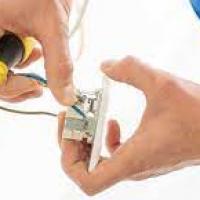No one wants to deal with electrical problems, but they sometimes happen. When they do, it's important to know what the cause might be and how to fix it.
Electrical repairs can be daunting, but with the right information, you can handle them. In this article, we will discuss five of the most common electrical issues and how to solve them.
What are electrical issues?
Electrical issues are malfunctions with electrical wiring or appliances that can cause fires, shocks, and other dangerous problems.
Some common electrical issues include faulty wiring, plugs and sockets, overloaded circuits, and damaged appliances. If you experience any of these problems in your home, it's important to have them fixed as soon as possible to avoid potential safety hazards.
How do electrical issues occur?
Electrical issues can be caused by a variety of factors, including faulty wiring, an overload on the electrical system, or problems with the electrical components themselves.
If you're experiencing problems with your electrical system, it's important to get in touch with a qualified emergency electrician as soon as possible. They'll be able to identify the cause of the problem and help you get it fixed.
Electrical repairs can be costly if not done properly:
Electrical repairs can be costly if not done by a professional. Anytime you work with electricity, there is a potential for danger. Improper wiring can cause fires, and faulty electrical components can lead to serious injuries.
If you are not experienced in electrical repairs, it is best to leave the work to a professional. Electricians have the training and experience necessary to safely complete repairs.
In addition, they have access to the latest tools and products, which means they can often do the job more quickly and efficiently than a layperson.
Regularly check your electrical wiring and outlets:
Your home's electrical system is responsible for delivering power to all of your appliances, lights, and other devices. And while it's generally quite reliable, it's important to regularly check your wiring and outlets for any signs of damage or corrosion. This is especially true if you live in an older home, as the wiring may not be up to current code standards.
Fortunately, checking for electrical problems is relatively easy. Simply look for any exposed wires or outlets that show signs of damage.
If you see anything that looks out of the ordinary, be sure to contact a qualified emergency electrician to have a closer look. By taking this simple step, you can help keep your home safe and ensure that your electrical system remains in good working condition.
Common electrical issues and their solution:
1. Flickering Lights
There are a few things that could be causing your lightbulbs to flicker. It could be a loose connection, bad wiring, or a faulty switch. Here are some tips on how to fix flickering lights:
- First, check the socket to see if the connection is secure. If not, tighten the screws until the connection is snug.
- Next, check the wiring. Look for any bare wires that may be touching each other and causing a short circuit. Also, make sure there are no frayed or damaged wires. If you find any damaged wires, replace them with new ones.
- Finally, inspect the switch. Make sure it is firmly in the "on" position and that there is no rust or damage. If the switch is damaged, replace it with a new one.
2. Frequent Tripped Circuits
There are a few things you can do to try to fix frequently tripped circuits:
- Check your breaker box and make sure that all of the breakers are in the correct positions. There might be something blocking a breaker from closing properly, which is causing it to trip.
- Make sure that there are no loose wires or plugs in your sockets. If there are, fix them and see if that fixes the problem.
- Check your wiring and see if any of it is damaged. If it is, have it repaired by a professional electrician.
- Replace any old or outdated wiring in your home with new wiring. This might be more expensive than some of the other solutions, but it will be worth it in the long run.
3. Outlets that Don't Work
- Check to make sure that the outlet is properly plugged into an electrical outlet.
- If it is plugged in and still not working, try flipping the switch on the outlet.
- If it is plugged in and the switch is flipped on, there might be a problem with the fuse. Try changing out the fuse.
- If it's still not working, you might have to call an emergency electrician.
4. Burning Smells
If you smell something burning, it's important to act fast. This could be a sign of an electrical fire.
- First, try to identify where the smell is coming from.
- If it's coming from an appliance, unplug it and see if the smell goes away.
- If the smell is coming from a socket, turn off the power to that area of the house and call an electrician.
5. Shock when Plugging in Appliances
If you get a shock when you plug in an appliance, it's probably because there is a loose connection somewhere.
- First, check the appliance cord to make sure it's not damaged. If it is, replace it with a new one.
- Next, check the socket to see if the connection is secure. If not, tighten the screws until the connection is snug.
- Finally, check the wiring. Look for any bare wires that may be touching each other and causing a short circuit. Also, make sure there are no frayed or damaged wires. If you find any damaged wires, replace them with new ones.
If you're still getting shocks after taking these steps, call an electrician.
Precautions:
If you're experiencing electrical issues in your home, it's important to take precautions to ensure your safety and the safety of your family.
First, identify the source of the problem and then shut off the power to that area of your home. Once the power is off, unplug any appliances or electronics that may be affected.
Next, inspect the area for damage and make sure there are no loose wires. If you see any damage, call a professional emergency electrician to have the issue repaired.
Finally, once the repairs have been made, be sure to test the area to make sure everything is working properly before restoring power. By taking these steps, you can safely fix any electrical issues in your home.
Conclusion:
The bottom line is that electrical repairs are best left to the professionals. If you're experiencing any electrical issues in your home, call a licensed emergency electrician to have the problem repaired. By taking this precaution, you can ensure your safety and the safety of your family. Not only will this help to ensure your safety, but it will also save you time and money in the long run.
Emergency Electricians
Local Electrician






